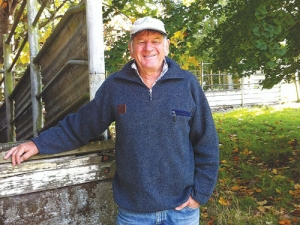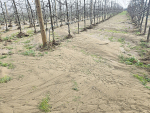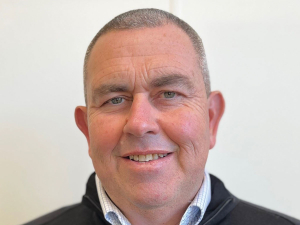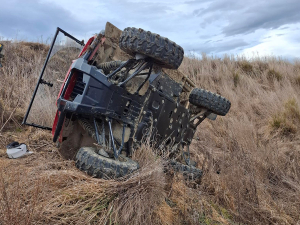While farmers are “traditionally a private and self sufficient breed” it is important they seek help early when the uncontrollable bites.
That’s the advice of Gisborne farmer David Scott, the Coast/Gisborne/Wairoa coordinator for the East Coast Rural Support Trust since 2003.
The trust was the first in New Zealand, set up in 1991, and has four part-time coordinators covering Cape Palliser to East Cape. It is part of a nationwide network that can assist rural individuals, families and communities who experience an adverse event – climatic, financial or personal – to more effectively meet and overcome these challenges.
Scott says the free, independent and strictly confidential service is well used during a declared adverse event, but has fewer requests during normal ‘peace-time’. He says it is important for farmers to understand how their trust coordinator can assist any time they feel circumstances are getting beyond their control.
“Some of the ways the trust works include developing, analysing and creating options and actions for people to take, working with financiers to resolve financial and debt problems including restructuring, negotiating with creditors, animal welfare issues, and liaising with and making referrals to other professional advisers and local support groups.
“The trust’s role is that of a facilitator to assist and guide in an impartial, informal and compassionate manner,” Scott says.
He stresses the importance of seeking advice early. “The earlier the request for help comes, the better the chance the situation can be salvaged; often during a financial crisis we are called in too late.
“More often than not the request for help comes from the partner who is involved daily in and observing the change of the behaviour of the farmer and the lack of essential income required to keep the business viable. Farmers have traditionally always managed to sort things out themselves, however when the non-controllable bites – such as climate, exchange rates, rising cost of goods, market force sale prices – often plans come unstuck big time.”
As the East Coast and Hawke’s Bay regions reflect on another long, dry and hot summer, Scott is pleased to see more farming families being proactive with their planning.
“The big winner for us right now is the huge amount of drought strategies taken on board by a lot of our sheep and beef farming families.
“There are many more adverse weather events [like droughts] due to climate change and often a farm and family have barely recovered from one event when the next is upon them.
“We have brochures [that give advice] and for eight years have preached the key elements at many community woolshed meetings. Federated Farmers has also been giving out the same messages.”
New technologies that challenge traditional farming methods are another big stress.
“For example, the Farmax programme, based on the amount of dry matter/feed covers versus the carrying capacity of a farm.
“Sale of stock and de-stocking are based on the computer result and not so much on the ‘eye and mind’ of the farmer. This technology challenges and threatens the farmers’ years of experience.”











